Mirjam Steinbock comes from North Rhine-Westphalia in Germany. After graduating from high school, she completed an apprenticeship in crafts in Essen, before moving to Vorarlberg at the age of 23, where she worked for several years in her profession as a goldsmith. Having the feeling that she had not yet found her niche professionally, for the following years of her professional development she was drawn from the commercial to the social sector, before finally coming back to culture and especially to contemporary dance. Through her involvement in production management and dance festival collaboration, she found her way towards writing. Today she sees herself as a cultural worker. Mirjam Steinbock is the managing director of IG Kultur Vorarlberg and pursues freelance journalistic activities and artistic projects which combine text, music and dance. She lives in Bregenz and, together with her dog Kilja, immerses herself completely in nature at least once a day, from which she draws strength and inspiration for everyday life.
Where and how did you grow up?
I was born and raised in Westmünsterland in North Rhine-Westphalia, very close to the Dutch border. The land is flat, the sunsets are beautiful, and the proximity to the North Sea is a luxury. Still, the land of mountains called me, probably because my mother is from Vorarlberg. At 23, I moved to Austria and stayed.
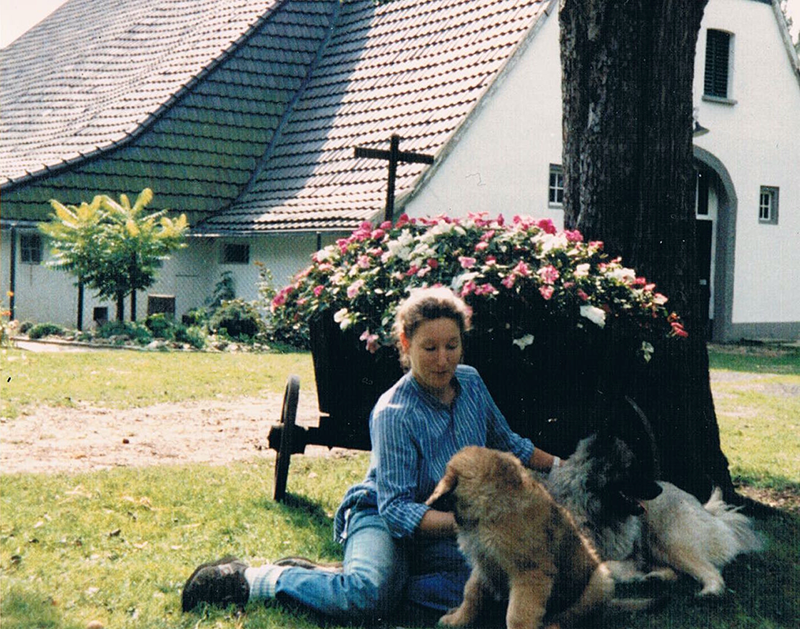
Could you describe your professional background?
I grew up in a working-class family, where we always worked with crafts and made many beautiful things. At home I was introduced to literature, music and dance and I developed a love for all of them. I was also shown the value of great hospitality and of casting my eye towards the details in things. We always had animals and we lived for a long time in the countryside in complete isolation. Without siblings, I had to come up with some effective solutions to help me face the reality of being on my own. Since childhood, I have talked to myself a lot and I have verbalised the fantasy worlds of my mind. I also talked to our dogs, horses, cats and chickens. This was normal for me and it still is today. I rode horses a lot, preferably bareback and cross-country, and I loved to dance. Drawing was also important to me, and I used to read whenever I had a free minute.
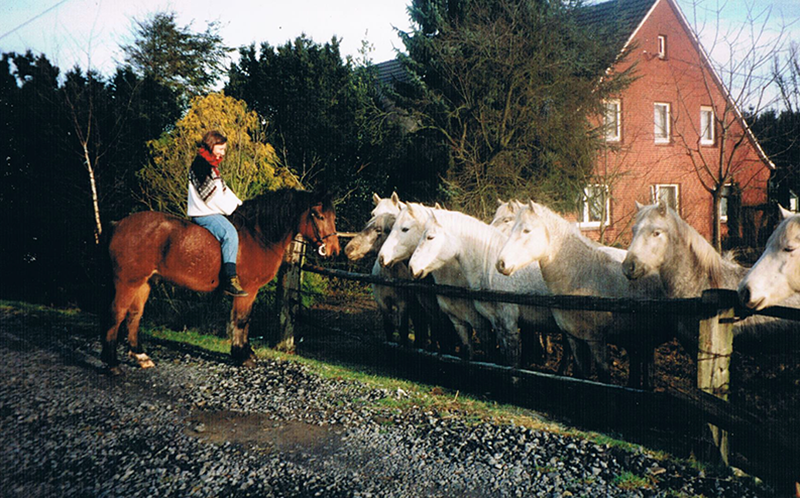
After graduating from high school, I trained as a goldsmith in Essen, which was a stopgap measure at the time because I didn’t really know exactly what I wanted to do. My thought was that it would be good to have the chance to think for a while about where the next step on my professional journey should lie. Although I liked the creative side of being a goldsmith, I never really warmed up to metal as a material, and after a few years in the profession I decided to move on and I got a job in an office. What started out as being “most importantly, a job” had sparked great interest within me and I had liked it in the metalworking store. It was like a second education. After six years, I felt the need for change however and I tried out office work for a while. At the same time I started dancing regularly and it was during a workshop in contemporary dance that it dawned on me that I was at home in this world.
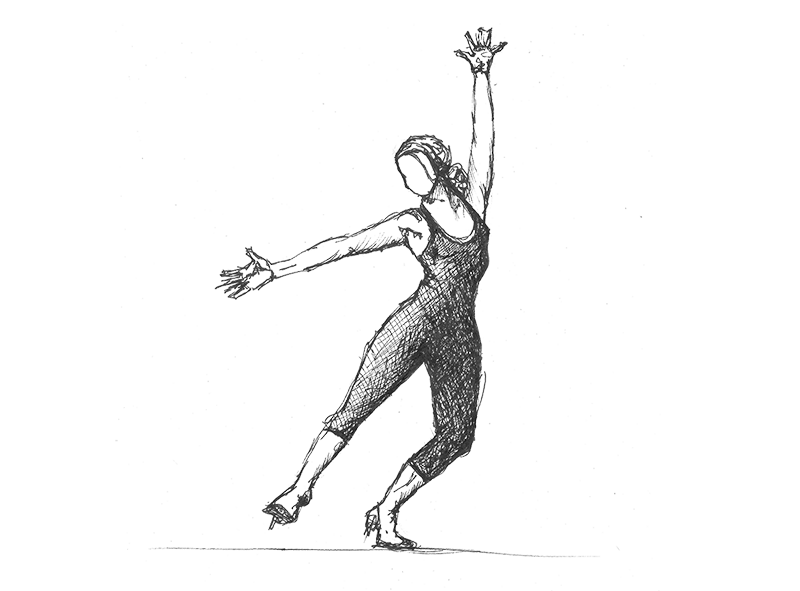
A professional opportunity also arose for me at this time as a production manager and project collaborator for dance clubs and festivals. After that came the writing, firstly about dance, then cultural events, and then finally art projects. Also my own projects such as “story to go”, together with the dance company “bewegungsmelder”. This was a project in public spaces, inviting passers-by to tell their personal story. My colleague Natalie (through dance) and I (through text) would then convert their stories into a new language, and give it back to the narrator in a new form.
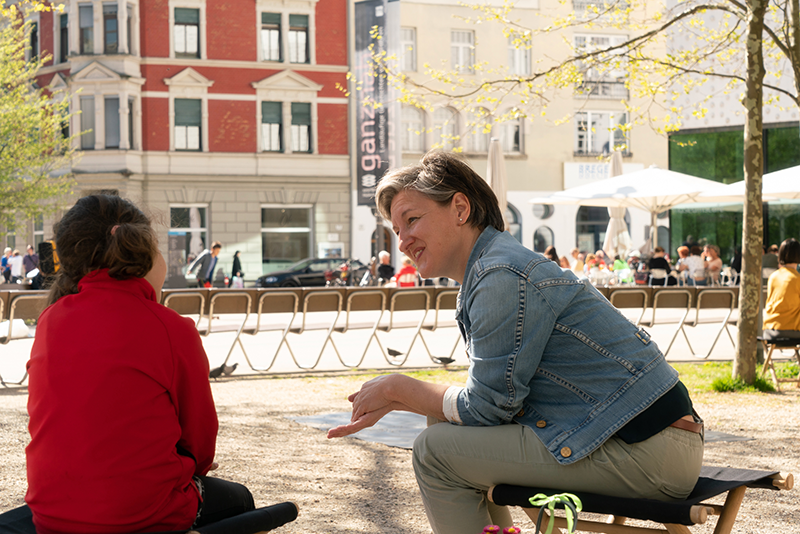
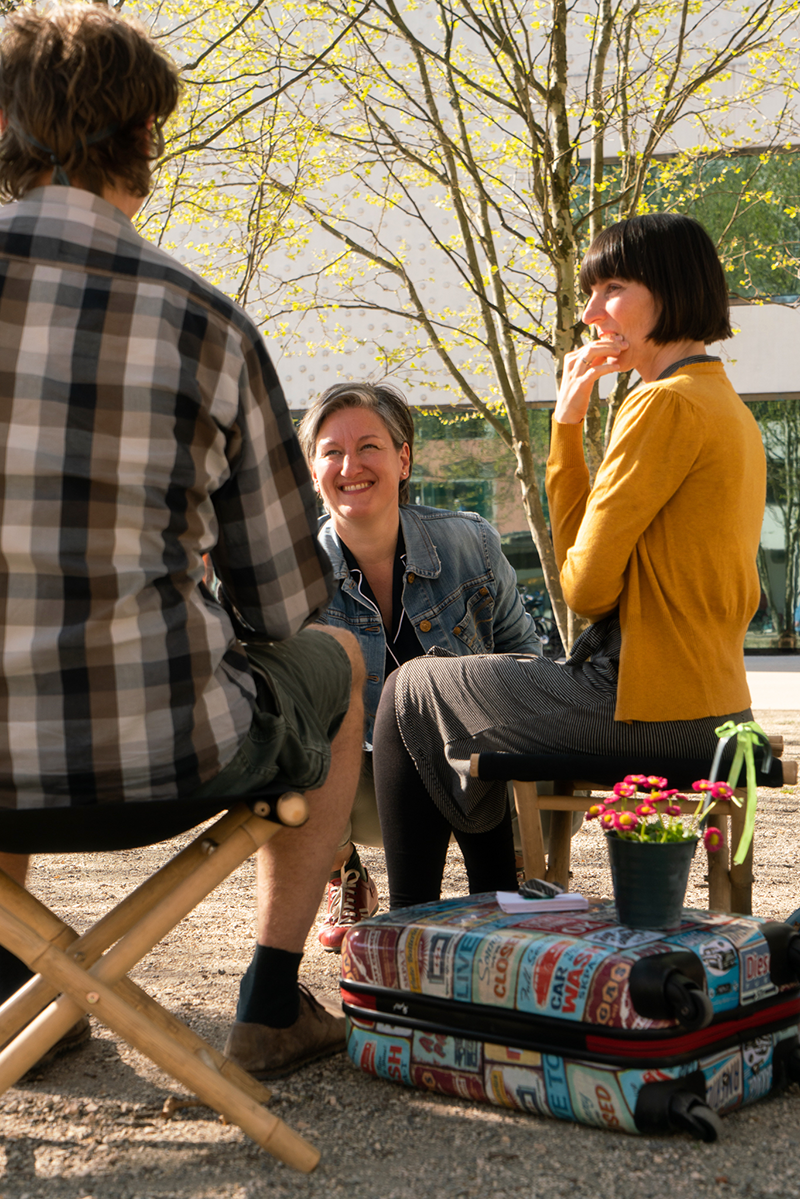
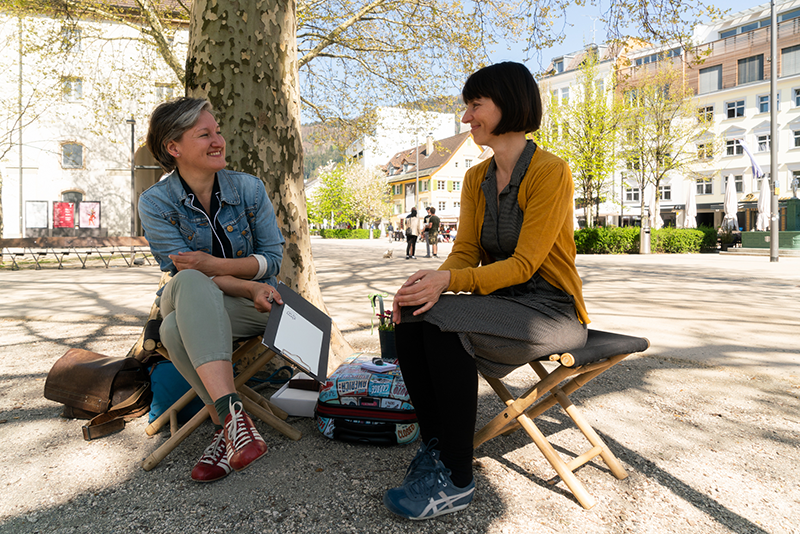
Were there certain events or stations that were formative for your career?
There were always turning points that were clearly apparent quite some time in advance. In retrospect I can recognise a 7-year cycle of things. But these are rather processes that are heralded and that also announce themselves physically – the events only mark a certain direction. Nevertheless, I have experienced situations, especially in harmony with nature, that I knew were significant. They act like a treasure in the memory.
Have there been certain people who have been formative for your career?
Yes, I could list a few who were decisive and whom I remember. Among them are both particularly pleasant and painful experiences I have had with people. The relationships and contacts were always deeply touching. In the last few years I have thought more and more about a friend of my uncle, although we are no longer in contact. I had many profound conversations with her when I was 15 years old. One time she said, “Keep it up and you will get to the land of milk and honey“. That still works like an energy booster today.

Has your environment supported you in your career?
My parents have always had my back. And my closest friends have always stood behind me. That gives me incredible strength. But I have also experienced that there were often lucky coincidences or coincidences that were appropriate to the development process. Animals were often involved in personal turning points. I have been a horsewoman since my childhood, but I was never particularly interested in classical riding. So it was a kind of revelation when, at the age of 18, I discovered the pastoral way of riding at a neighbouring Camargue stud and, although I had my own horse, I lost my heart to a young stallion. When the two of us were out on the trail, there was great harmony – almost a fusion. This has happened to me very rarely, and it still brings tears to my eyes.
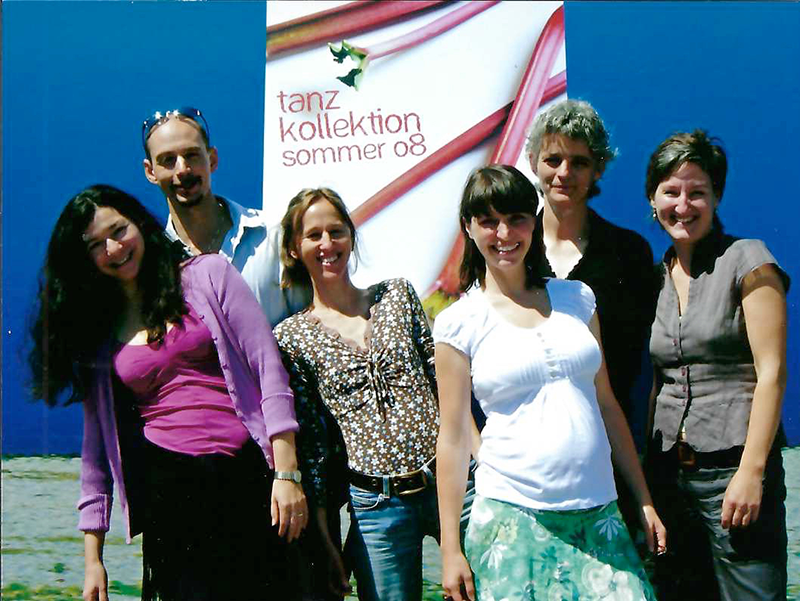
What are your current activities?
Professionally, I am the director of an interest group for autonomous cultural initiatives, IG Kultur Vorarlberg. I am employed there and advocate for better working conditions in the cultural sector, especially with representatives of cultural policy. We act as a network nationwide and inform and advise our members and interested parties. During the lockdown, from which the arts and culture scene suffered so much and will probably continue to do so for years to come, we had an incredible amount of work to do. The already precarious working conditions have become even more painfully noticeable since then.
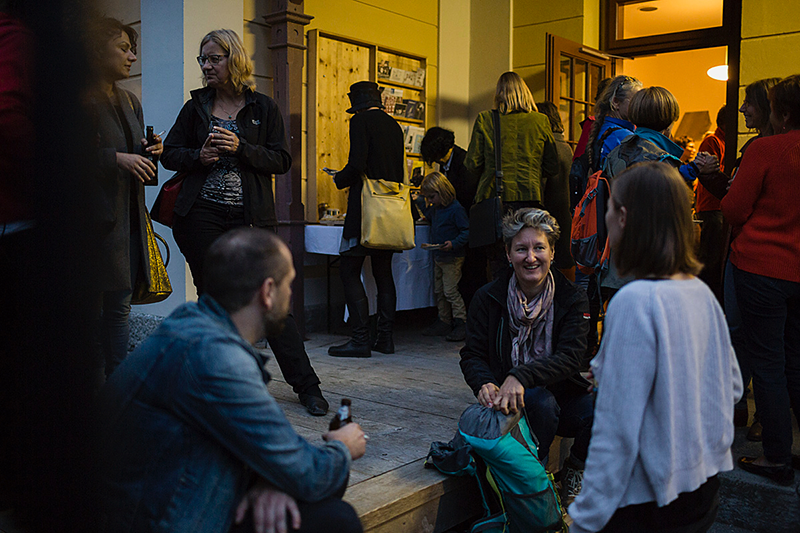
Besides this work, in which I am employed on a 50% basis, I am also self-employed. I write articles and contributions that are published online and in print – or my own texts, often for art projects, such as for the music platform “Unter der Laterne”. With colleagues I run a gallery for contemporary art, the “Galerie Vor-Ort – Drei Fenster zum Weg” in Altach, and I am active in a number of associations on a voluntary basis. Among them are four cultural initiatives, including “Spielboden” in Dornbirn and “locart”, an association I recently co-founded to encourage private individuals and companies to invest in Vorarlberg’s art and culture scene. This is a project that is intended to last beyond the time of the pandemic crisis. I am also the chairwoman of the “Abschied in Würde” (Farewell with Dignity) association, which has been offering the individual organisation of dignified funeral ceremonies in Vorarlberg for almost three decades, and this is a very intensive and profound activity. A bereavement is always an exceptional situation that triggers or can trigger a crisis. Being very busy with the farewell and talking about it immediately raises questions about quality of life, which makes perfect sense of course.
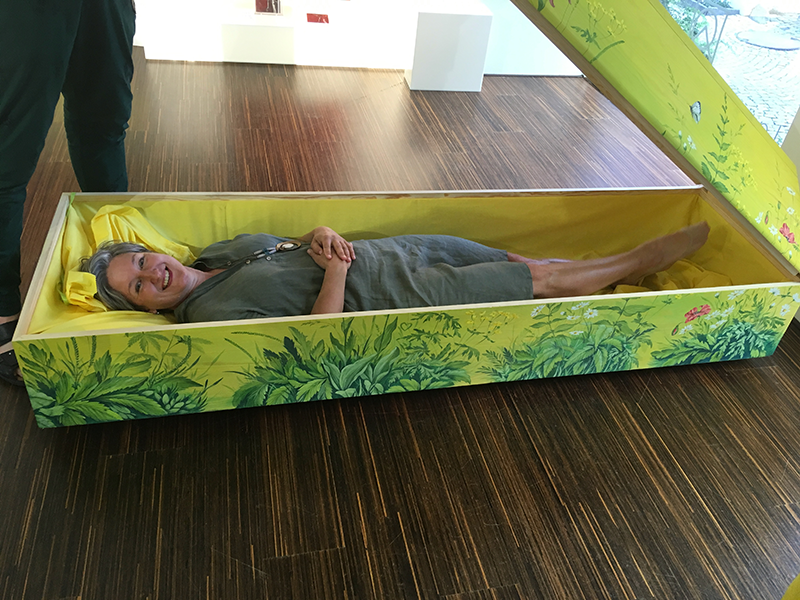
Does what you are currently doing fulfil you?
It fills me up and it also overfills me. For a few years now, I have noticed that I am doing too many activities. The need for focus is there. Doing many things well at the same time and also on time is an equation that rarely works out.
Do you think that you yourself have an influence on whether your activities are fulfilling?
Yes, I think so. This requires regular reflection and an unconditional trust in the body, because it carries a wisdom that the mind is not aware of. I am convinced that we have a warning and guidance system that can ensure our development and mental and physical health – as long as we hear it and act accordingly. Ignoring this guidance system can lead to illness and unhappiness. It is not so easy to follow it, because it also means swimming against the tide socially. In any case, it requires backbone to follow one’s own path or, if it is not yet exactly apparent, to explore it without reservation.
What or who inspires you in everyday life?
Again and again nature and animals – watching them is a pleasure. That gets me away from the head work and into the body. And not just seeing, but tasting, smelling, touching. Taking time to breathe and be consciously aware of it. The scent of a flower. A gentle breeze. Encounters with people on the street, when you suddenly smile at each other without knowing each other. A moment when a touch is held longer than is normal, that is a wonderful experience. The giggling laughter of children, that immediately makes me happy. Interaction with children is very enriching. And then, discovering something that I have overlooked so far on paths I know. Small things – the very quiet, inconspicuous thing, that suddenly pushes itself into consciousness and wants to be seen. A favourite poem that has accompanied me for many years and whose meaning suddenly unfolds in all its glory. Or the call of a friend just at the moment when I thought of her.
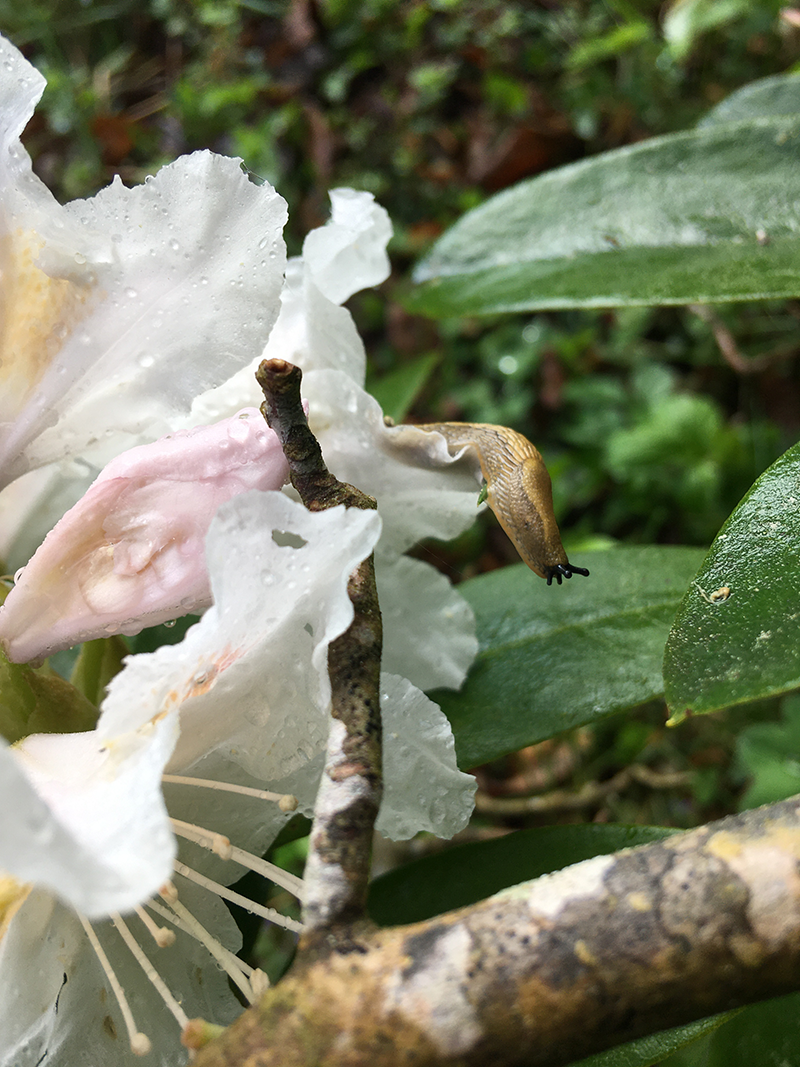
What or who gives you strength and energy in everyday life?
Explained the other way around, if I am powerless and tired, I have wasted my energy, not nourished myself well in time. By nourishment I mean spiritual and physical nourishment. It is important to perceive my own needs and appreciate them. To practice self-respect. To focus on what I am doing right now. To go slowly and not believe every thought. To get enough sleep, keep every part of my body moving, and laugh a lot. If I pay attention to this, then the energy flow is given and I have enough power.
Oh, and one more thing: writing letters immediately gives me power and makes me incredibly satisfied.
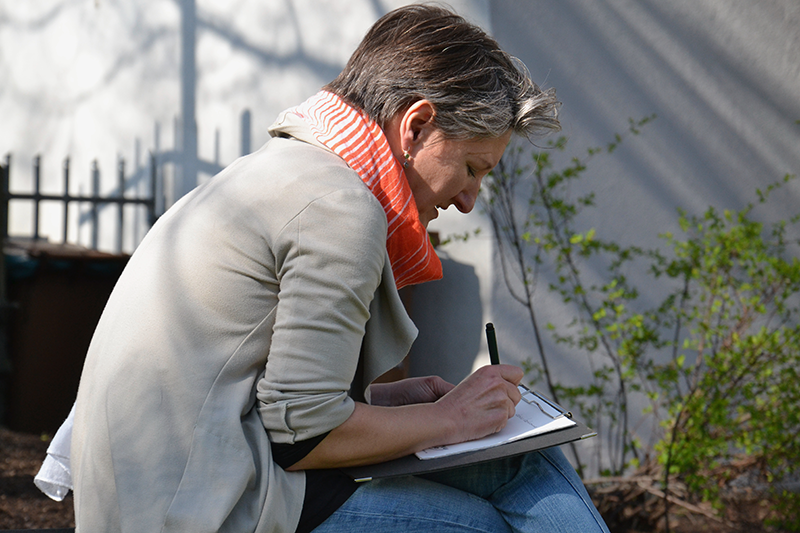
There are “magic moments” when everything seems to fit. Moments that fulfil, inspire and give strength. Moments that confirm that the effort is worthwhile and that what you do is meaningful and valuable. Have you already experienced such moments in relation to your own activities?
Yes, I know them very well, that is beautifully and aptly described. I have a few examples in my head and realise that I don’t want to share them. But I can say this much: My palms tingle in magical moments or I am moved to tears and feel enormously grateful. Then I feel a lot of resonance. There is a flow in it, it’s like a gentle and strong wave on which you want to ride.
Do you actively do something for it, so that such “magic” moments can happen?
I think such moments simply arise and then they require one thing: a complete dedication.
But there are certainly favourable conditions for them to arise. For me, it is absolutely necessary to take responsibility for my actions, to treat myself and others with dignity, and to make sure that I get a lot of pleasure from what I do. And then it takes vigilance to also recognise the magical moments or small miracles of everyday life. There are probably offers of such moments all the time and we often overlook them through a sense of duty, stress, haste, carelessness and also when the ego is all too loud. To trustfully surrender to the fullness of life is a constant exercise. Yet there is always the desire for security, control, habit. Hilde Domin said it aptly for me: “I set my foot upon the air and it carried me.”
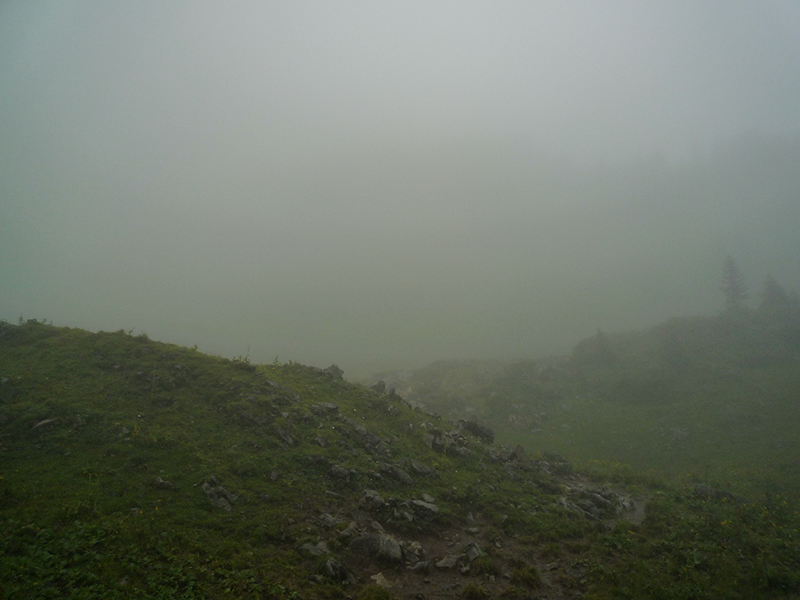
Are there moments when you doubt what you are doing?
Yes, I often doubt and question whether my behaviour was right, whether I paid attention to everything, or whether I respected my counterpart enough. There is a fine line between reflection and self-doubt. I think it things have to hurt a little at times, otherwise nothing changes. But it also requires a generosity towards oneself. Not to take yourself too seriously, and to see a mistake as something that is still missing is also a good approach. For some time now, I’ve been trying to look at life in a more playful way and to celebrate it. When I’m relaxed, things flow better and I’m more open and also more ready to receive magical moments.
In retrospect, can you find something positive in difficult moments?
In difficult moments I move closer to myself and that is good. To be able to accept yourself with all of the facets that are not all warmly welcome is a great thing. And it requires a lot of work. I had the most difficult situations of my life on the Alp. Up there in the remoteness and with the responsibility for the animals in often impassable terrain and sometimes in the most adverse weather conditions, you are completely on your own. You have to make decisions quickly and the decisions are often very directly about life and death. I have experienced my greatest failures during three Alpine summers. On the first Alp, I lost a pregnant cow in an accident. On the second Alp, while shepherding in complete fog, I realised I had to quit my job – and the job had really been my baby for many years. And on the third Alp I had to quit because I realised I just couldn’t do it. Each failure was extremely painful, and at times still are to this day. But I wouldn’t want to have missed out on any of them and, interestingly enough, they gave me enormous strength. A dear friend of mine gave me the following to take with me on my last Alp: “Always make sure that you are grounded both in heaven and on the ground!” This sentence probably saved my life.
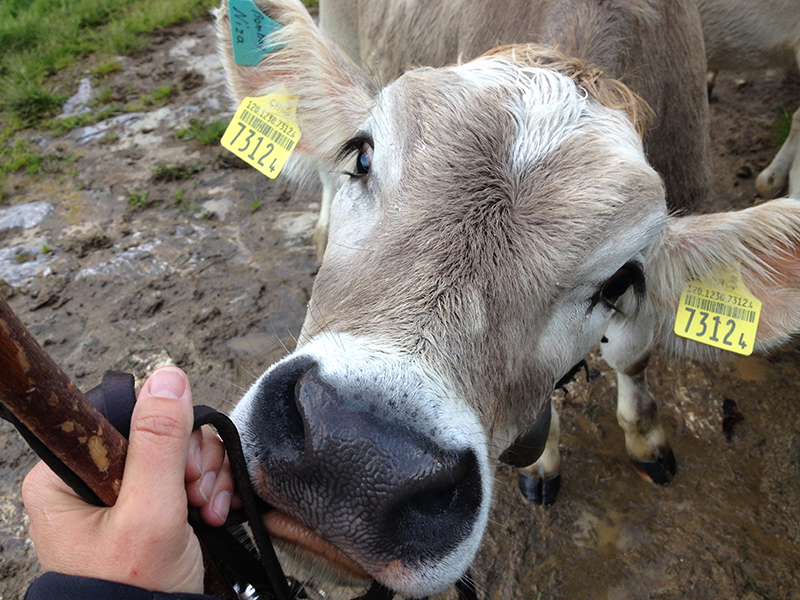
Is there anything you would do differently in retrospect?
I never allow myself that thought and it’s hard for me to go down that road in my mind. I will try though… Yes, there is something I would do differently: I should have worn my heart on my sleeve even more. Every day I have the opportunity to do this and I notice that I still don’t do it consistently. It takes a certain audacity to seize the moment.
Do you want to contribute to society with your activities?
If I manage to contribute something positive to society through my activities, I would find that quite meaningful. The things that reach other people are often the simple, honest things. For a while now, I have been more concerned with the attitude in which I perform something than with what I do. To this end, I experienced something great last year: the waiter at my favorite café on Meidlinger Markt in Vienna has an incomparable way of putting something on the table. How mindful and appreciative he does this, towards the matter at hand and the guest, becomes infinitely precious through his service.
Is the recognition of other people or the public important to you?
Of course. As a social being, I want to be seen, heard and felt. But being recognised is worth even more to me. From the moment I was greeted by name on the street in Bregenz, I felt at home here.
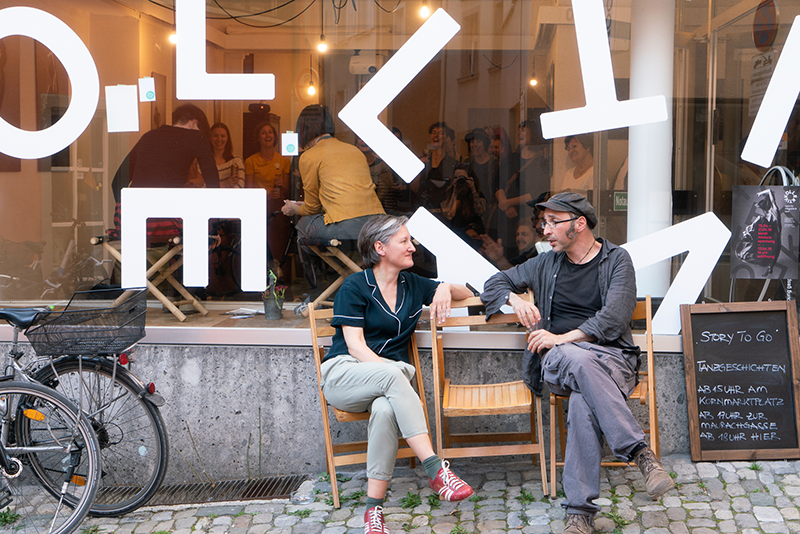
How well can you live from what you do professionally?
Measured against the high commitment and quality of my work, not much remains from which to live. On the one hand, this is due to working conditions and pay in the cultural sector, and on the other hand it is down to me, because I do a lot of work free of charge and sometimes fail to communicate the appropriate price, especially when it comes to voluntary associations or emerging initiatives that I am enthusiastic about. I am currently busy trying to change this so that there is a good balance between full-time and voluntary work. My work at IG Kultur has made me more aware of this. It would be counterproductive to permanently fight for fair pay on the one hand and to do so much cultural work for free on the other, so I have a duty in addition to my own responsibility to myself.
Is there something that is particularly occupying you at the moment?
Yes: I ask myself with what and with whom I want to spend my time and how I want to lead my life. Which qualities are indispensable, what it takes for personal development, what I want to contribute to community life and what means are necessary for this. And, very importantly: How I manage to use the resources of nature and the environment to the extent necessary.

Is there something you would like to (increasingly) spend time on in the future?
I would like to enrich my life further with joyful things. Do what gives me pleasure. Even if there is not immediately a professional or personal purpose associated with it.
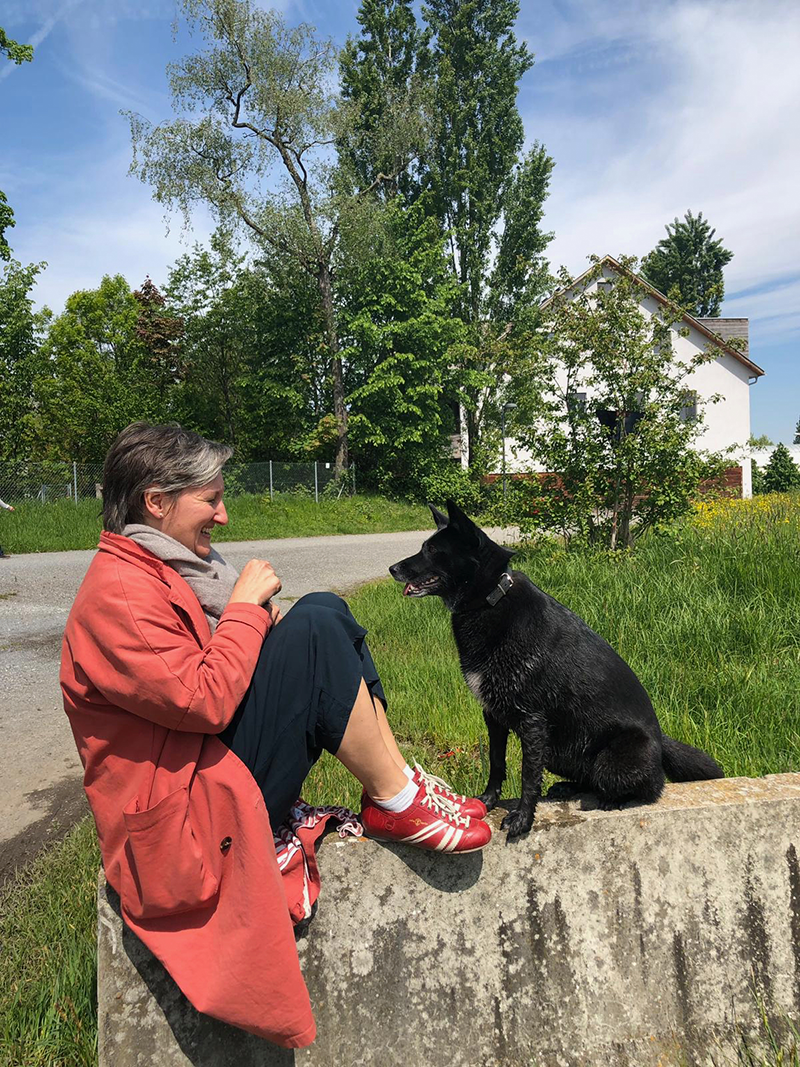
What are you most grateful for in life?
For the opportunities I was given as a child, as an adolescent. For my solid, good education. For the connection to nature and animals. For my strong sense of solidarity. For my sense of beauty. For my willingness to take risks and my enthusiasm. For the many fine and important people at my side. Through them I get opportunities for my professional and personal development and they give me confidence, which is great.
Interview
Laura Hilti, July 2020
Illustrations
Stefani Andersen
Links
IG Kultur Vorarlberg
Galerie Vor-Ort – Drei Fenster zum Weg
Verein locart
Music project «Unter der Laterne»
Project «story to go» with the Dance Company bewegungsmelder
Abschied in Würde (Farewell with Dignity)
Credits
Portrait, story to go: Sarah Mistura
young year, netzwerkTanz, Farewell with Dignity, walks, cows: private
IG Kultur Feier: Darko Todorovic
Alp: Mirjam Steinbock
story to go, Feldkirch: Patricia Begle
With the dog: Christine Lederer
This interview is part of the project “Magic Moments” by Kunstverein Schichtwechsel, in which people are interviewed about their careers, activities and their magical as well as difficult moments.
Curated by Stefani Andersen and Laura Hilti, Kunstverein Schichtwechsel.
Supported by Kulturstiftung Liechtenstein and Stiftung Fürstl. Kommerzienrat Guido Feger.
>>> All interviews
